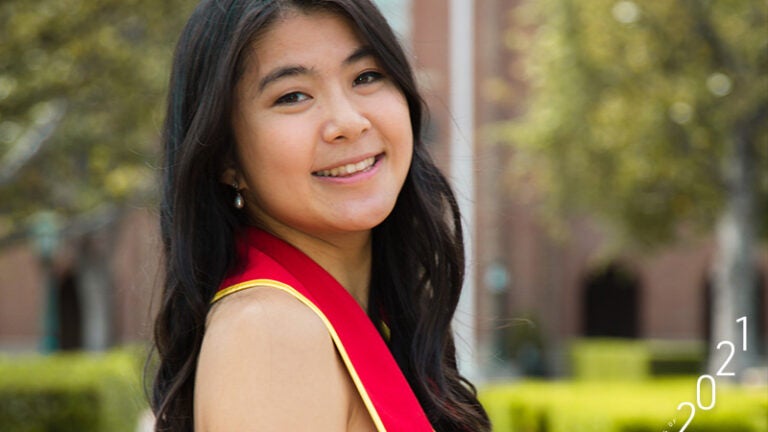
Graduating senior founds two humanitarian nonprofits during her time at USC
In high school, Lauren Yen would often help out at her mother’s internal medicine clinic, tidying up documentation and converting paper medical records into electronic ones. When she traveled to a refugee camp in Greece in February 2020, she was struck by how health workers struggled to create a centralized medical recordkeeping system, especially as they relied on paper-based notes for most of their documentation. When papers went missing or health workers didn’t have the records on hand, patients suffered from incomplete treatment, misdiagnosis, prescription errors and other issues.
“This type of system is unreliable. There is no way to transfer data and medical information between medical providers,” said Yen, who graduates May 15 from the USC Dornsife College of Letters, Arts and Sciences with a bachelor’s degree in biological sciences. “Without a system to document medical information and analyze data, clinicians struggle to have a comprehensive view of the prevalent medical diseases in a camp.”
To help ameliorate the conditions in the camp and similar settings, Yen, who is also pursuing a progressive master’s degree in global medicine through Keck School of Medicine of USC, and some of her fellow classmates decided to found a nonprofit. Frontida Records allows health care providers to create cloud-based health charts and notes, perform data analytics and monitor pharmaceutical supplies.
Partnering with two nonprofit organizations, Crisis Management Association in Greece and Floating Doctors in Panama, Frontida has helped more than 1,500 refugees, documented more than 2,700 physician visits and scheduled more than 3,000 appointments.
Yen says the organization is an example of fruitful cross-campus collaboration. Her cofounder, Laura Roed, is graduating from USC’s Jimmy Iovine and Andre Young Academy this spring, and other leadership positions are held by students at USC Dornsife, the USC Viterbi School of Engineering and the USC Marshall School of Business.
The idea for Frontida came about during Yen’s visits to the refugee camp as part of the “Innovation in Engineering and Design for Global Challenges” (CE 499) course at USC Viterbi. The course included two trips to a refugee camp in Lesbos, Greece.
Frontida is one of two nonprofits that Yen co-founded as a result of her work during the course. The other resulted from the class’ first visit to the camp, when the students were looking at how to improve residents’ housing. The tents in which the residents lived, Yen explains, were stuffy and hot and caused condensation to form along the ceiling inside. This, in turn, prompted mold to form, which caused health problems for the people dwelling in the tent.
Yen and the other students took material used in greenhouse construction and created temperature-modulating tiles that could be connected or attached to the tents. When they returned to L.A., the students decided to expand on the idea and create Torch Global Inc., a nonprofit that creates materials to help people living in tents, particularly refugees and the homeless.
Yen says the support of her professors at USC has helped her gain confidence to translate her theoretical solutions into tangible creations, and to create nonprofits that use those creations to help vulnerable populations.
“A lot of the projects that I’m working on are dealing with issues that people have told me can never be solved; however, my professors at USC told me differently. They say that I can be someone who is a vehicle for change in the humanitarian space,” Yen says. “I want to steward all the skills and things that they have given me, and continue moving forward with grit and gumption.”